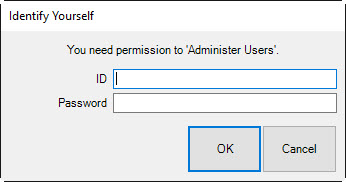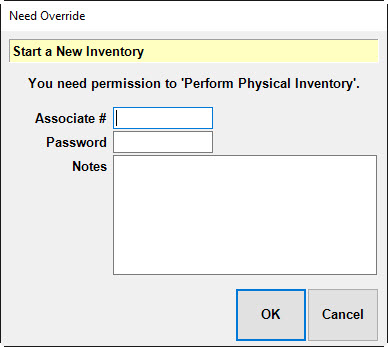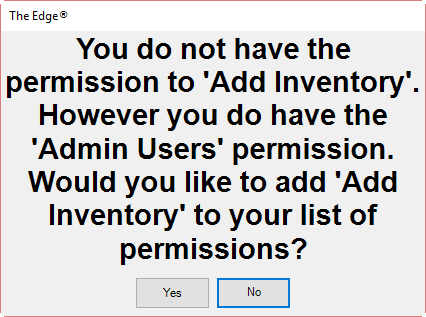The Edge is set up to ensure that only authorized personnel
can conduct transactions. For example, all users are permitted to make a
sale. However, a supervisor’s password might be required to access
reports, tax settings, or even inventory areas. For further security,
logon credentials timeout after 5 minutes.
|

|
The Edge will terminate if the system clock differs
from Internet time by more than 10 minutes. This is to prevent data
integrity issues. If this happens repeatedly, have your IT
technician check your Internet connections and conduct some ping
tests. |
Identify Yourself
When a password-protected function is accessed, the
Identify Yourself security dialog will appear.

Enter your ID and Password and select
OK. If your ID and password are accepted, the desired window will
appear and allow you to proceed. If your ID and password are not accepted,
you will receive an ID Failure message. If you feel you received
this message in error, contact your supervisor or system administrator.
Each user’s permissions can be customized as needed. See the section
entitled Security for more
information.
|

|
When using the Edge for the first time with no
conversion, you must enter an associate. When you do this, there are
no permissions in yet, so there is no way to get to Associates ►
Add. When you go there, and permission window comes up, select
Cancel. The Edge will allow you to go to the Add window enter an
associate, but that's all until someone with permissions is
entered. |
|

|
If you forget your password, contact The Edge
Support Team for assistance in resetting it. |
Need Override
Separate from Identify Yourself is the Need
Override window; this is to capture the permission of a supervisor or user
who can allow another user to perform a specific task. It also records
who, when, and why an action is taken. System Options can require
that the Notes field be completed.

Add Permission
A third type of permission window pops up when permission
is not actually specified for the associate, but the associate is an
administrator. In that case, the user will be prompted to update his or
her own record to allow the activity. This will be saved in the
associate's security settings.





